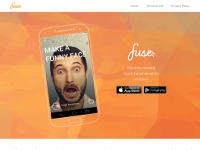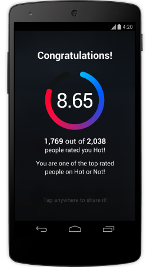World Cup Fans Go Crazy for Dating Apps
- Wednesday, July 09 2014 @ 07:11 am
- Contributed by: kellyseal
- Views: 1,677

Brazil is heating up for singles, and not just because of its sunny weather.
Dating app Tinder is apparently a hot commodity among those taking part in the World Cup festivities. News site Quartz recently reported that Tinder has seen a 50% increase in downloads since the World Cup began last month.
Brazil is Tinder’s third-largest user base behind the US and the UK, and the app is available in Portuguese.
Hookup apps like Tinder and Grindr, which are popular around the world, allow users to swipe through pictures of potential matches that are geographically close to them, accepting or rejecting based on a few photos and a brief profile description. If two people select one another, they can start chatting and then take it from there. This simple process caters perfectly to short-time travelers looking for a fling.
First, we saw Tinder downloads spike during the Olympics, especially in Olympic Village where the athletes mingle with fellow athletes, fans watching the games or employees working the events. Now with the World Cup festivities drawing fans from all over the world to watch and celebrate the games, we’re seeing another significant spike in dating app downloads.
It seems dating apps are becoming more popular at major events that draw huge crowds. Tinder has become a popular tool for singles traveling during the summer to meet up with other singles, so it only makes sense that events like the World Cup would attract a lot of new users. Why not try something new when you’re in a foreign city with tons of people all around that you could meet?
The numbers also seem to favor women, especially local Brazilian women. Many men have come to Brazil not only to watch the World Cup, but to meet the stereotypical idea of the sexy, beautiful Brazilian woman. An unofficial poll suggested as many as 90% of the tourists are men.
Grindr, a popular app among the gay community, has also seen its numbers spike by 31% in Brazil since the World Cup began. Brazil is the sixth-largest market for Grindr.
An estimated 600,000 tourists from 186 countries are expected to visit Brazil during the World Cup, adding to the 3.1 million Brazilians who will be on the road for the championship. And as reported by Quartz, alcohol and hook-ups go hand in hand. Annual beer sales in the country are likely to rise 37%—bringing in about $816 million—during the month-long tournament.
For more on a popular dating app you can read our Tinder review.


